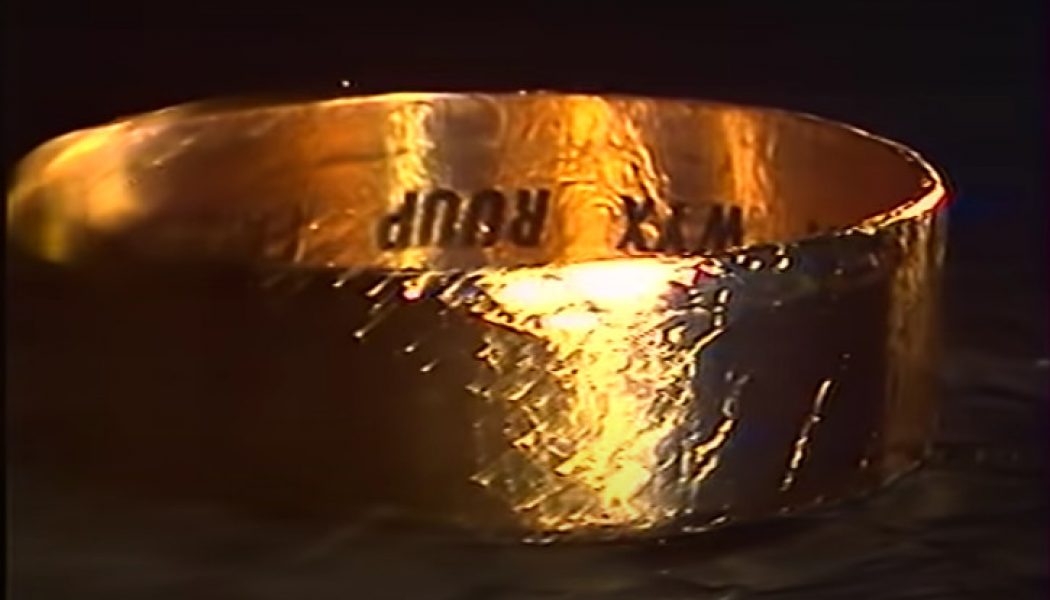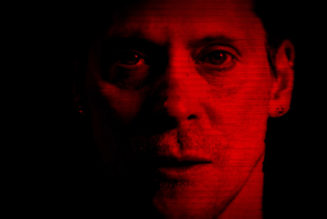You may think you’re familiar with The Lord of the Rings, but nothing can quite prepare you for an adaptation of J.R.R. Tolkien’s classic fantasy text made in the Soviet Union.
The made-for-TV film first aired on Leningrad Television in 1991 and was thought to be lost to time, as first reported by The Guardian. But the station’s successor, 5TV, recently unearthed a copy from its archives, and uploaded the entire work to YouTube in two parts.
With a running time of around 1 hour and 50 minutes, this adaptation focuses only on the first book of Tolkein’s trilogy, The Fellowship of the Ring, and is a riot of low-budget special effects, bizarre camera work, and Soviet mood music.
Rather than the epic Hollywood fantasy captured so well by Peter Jackson, this adaptation feels like a weird fairy tale told by a pipe-smoking madman in the woods. In other words: it captures a completely legitimate aspect of The Lord of the Rings, just not one we’re necessarily used to.
If you’ve not got time to watch the whole thing, here are a few choice moments, as helpfully identified and time-stamped by YouTube user Chris Staecker in two comments:
- The opening sequence. Featuring music composed by Andrei Romanov of Russian rock group Akvarium, an incredibly bleary shot of the One Ring, and snippets of the Nazgûl riding through the snow.
:no_upscale()/cdn.vox-cdn.com/uploads/chorus_asset/file/22426320/Screen_Shot_2021_04_07_at_11.10.43_AM.png)
:no_upscale()/cdn.vox-cdn.com/uploads/chorus_asset/file/22426321/Screen_Shot_2021_04_07_at_11.12.08_AM.png)
- Sméagol fights Déagol, claims the One Ring and turns into Gollum. For the Soviet adaptation there’s none of that “slow transformation into a hideous shadow of his former self” for Sméagol. Nope: he puts on the ring and suddenly he’s mister green skin sneaky hands. And why exactly is the chorus going “rrrrrrr” over and over in the background? That, my friend, is a little thing called ambience.
:no_upscale()/cdn.vox-cdn.com/uploads/chorus_asset/file/22426322/Screen_Shot_2021_04_07_at_11.14.22_AM.png)
- The hobbits set out on their adventure. If this bit looks like behind the scenes footage from a 1990s theater troupe that’s because it is. Where did the sleigh come from? Why is that one hobbit arguing with a mouthful of food? Who gives a damn. Skip forward also to see them trapped in the Old Forest.
:no_upscale()/cdn.vox-cdn.com/uploads/chorus_asset/file/22426324/Screen_Shot_2021_04_07_at_11.19.15_AM.png)
- It’s old Tom Bombadil, that merry fellow! Here he is: one of the oddest of Tolkien’s characters, a mysterious figure who might be god, and who was left out of Peter Jackson’s adaptation for being extraneous to the plot. He can certainly be removed from the story without much damage but it’s still a joy to see him here with his wife Goldberry.
:no_upscale()/cdn.vox-cdn.com/uploads/chorus_asset/file/22426325/Screen_Shot_2021_04_07_at_11.22.16_AM.png)
- Frodo meets Aragorn at The Prancing Pony. As Staecker notes, the creators have, by this point, given up on trying to make the hobbits look smaller than the other characters. Soviet Aragorn has decidedly less sexy mystique than Viggo Mortensen, but really who doesn’t.
:no_upscale()/cdn.vox-cdn.com/uploads/chorus_asset/file/22426327/Screen_Shot_2021_04_07_at_11.26.45_AM.png)
- The council of Elrond. It feels more like a scene from one of Shakespeare’s history plays than the lush elegance of Jackson’s Rivendell but it does the job. Skip forward to see Saruman warn Gandalf of the coming orc army, beautifully rendered as little dudes in horned helmets swiping at nothing at the bottom of the screen.
:no_upscale()/cdn.vox-cdn.com/uploads/chorus_asset/file/22426331/Screen_Shot_2021_04_07_at_11.31.22_AM.png)
:no_upscale()/cdn.vox-cdn.com/uploads/chorus_asset/file/22426334/Screen_Shot_2021_04_07_at_11.34.18_AM.png)
- Battling orcs in Moria. Orcs here are less monstrous creatures and more just “some dudes I guess.” What’s lacking in special effects is more than made up for with shaky camera work. Skip forward to see them traversing The Bridge of Khazad-dûm, and Gandalf is dead I guess??
:no_upscale()/cdn.vox-cdn.com/uploads/chorus_asset/file/22426336/Screen_Shot_2021_04_07_at_11.36.07_AM.png)
- Enter Galadriel and the magic … of dance. This is pretty much how I remember this scene from the books. Elves are immortal and live forever in weird enclaves. That means you’re basically a cult. The hobbits, meanwhile, are stunned by how good they are at dancing and then get drugged. Skip forward a few minutes and you can see Galadriel get tempted by the One Ring.
:no_upscale()/cdn.vox-cdn.com/uploads/chorus_asset/file/22426338/Screen_Shot_2021_04_07_at_11.40.14_AM.png)
- Frodo breaks an apple in two with his hands! No, I know this scene is otherwise a bit boring and is mainly about Boromir getting weird and clingy but the apple thing is still cool. Have you ever tried to do this? It’s damn hard.
:no_upscale()/cdn.vox-cdn.com/uploads/chorus_asset/file/22426341/Screen_Shot_2021_04_07_at_11.45.11_AM.png)
- Frodo and Sam are doing it for themselves. Everyone else is corrupted by power: only friendship remains! I absolutely love the ending here, particularly the music choice. This is really what The Lord of the Rings is about at heart: just guys being dudes.
:no_upscale()/cdn.vox-cdn.com/uploads/chorus_asset/file/22426344/Screen_Shot_2021_04_07_at_11.47.29_AM.png)
And that’s it! What’s really amazing to consider is that this adaptation also aired only a decade before the first of Peter Jackson’s blockbuster trilogy. If only the Soviet Union had survived a little longer we could have seen similar renditions of The Two Towers and The Return of the King.










